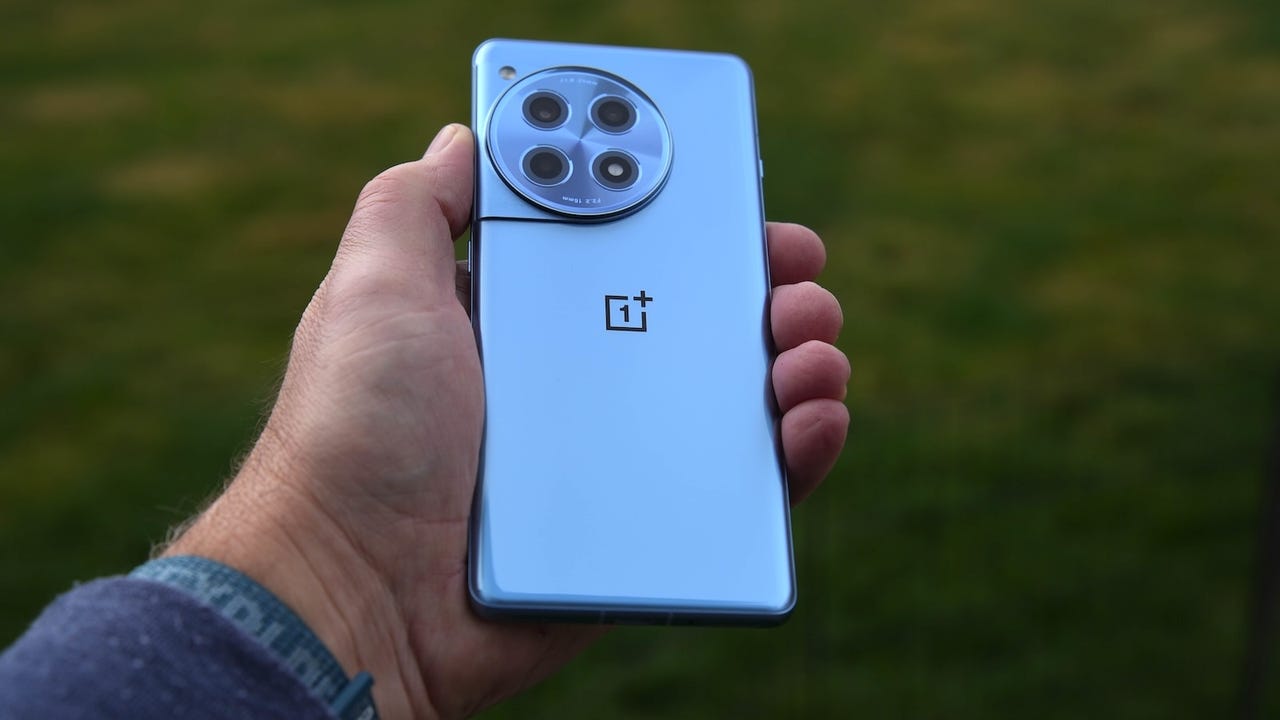
































Over the years, smartphone makers have conditioned us to accept that flagship phones should cost us$1,000 and more. But one company has remained consistent with its value-driven pricing model: OnePlus. Its first phone ever, the OnePlus One, was even described as the "flagship killer."
With the launch of theOnePlus 12R in North America, the company is finally bringing its most successful line of smartphones from India to the US, and it's looking to be one of the most promising mid-range phones of the year.
Also: 3 reasons why I'm sold on the OnePlus 12 (and 1 reason for buyer's remorse)
In order to release a phone that looks similar to its$800 sibling but is priced at$300 less, OnePlus had to make some compromises. After using the OnePlus 12R for a month, I'm convinced that the right trade-offs were made while key essentials remain in place.
View at OnePlusLet's first look at what's been carried over from the OnePlus 12 to the OnePlus 12R. Most of us spend hours every day staring at our smartphones, so the quality of it is one of the most essential parts. With the OnePlus 12R, the model has the same ProXDR, LTPO 4.0 display capable of refresh rates ranging from 1Hz to 120Hz. It has a peak brightness of 4,500 nits and 1,600 nits global maximum brightness, making it even brighter than the most expensive Samsung Galaxy S24 phone right now.
Also: OnePlus'$99 earbuds look and sound extraordinary, but there's one big catch
The display also supports OnePlus' Rain Touch technology, so it can be used whether the display or your fingers are wet, which is important for people like me who live in a region where it is often overcast and misty. My iPhone constantly has false screen activations in the rain, so it's been a joy to use the OnePlus 12R and count on the phone only reacting to intentional taps and swipes.
Speed is also important on a smartphone, and the same highest level LPDDR5X RAM and UFS 4.0 internal storage standard on the flagship OnePlus 12 is found on the OnePlus 12R. Those are quintessential for fast and efficient multitasking capabilities.
Fast charging is another staple of OnePlus, and unlike others, OnePlus includes the fast charging adapter in the box. 80W SuperVOOC charging is supported on both phones, the fastest I've seen on any US handset. The OnePlus 12R also has a slightly larger 5,500mAh battery than the 12, though you may not see much of a difference in battery life due to the different processors and efficiency levels. That's to say both phones deliver excellent endurance for all-day usage.
So, what about the compromises? They include an older generation Qualcomm Snapdragon 8 Gen 2 Mobile Platform, slightly lower RAM in the base model, no support for wireless charging, and less capable cameras with no telephoto lens. Most of these will likely have little impact on the majority of consumers, but if you require the absolute best camera experience that OnePlus has to offer, including the Hasselblad optimizations, then theOnePlus 12 may be a better fit for you.
Also: The$399 OnePlus 12R may be the best cheap phone you can buy in 2024
In comparing photos taken with the OnePlus 12R, OnePlus Open, iPhone 15 Pro Max, and Samsung Galaxy S24 Ultra, I noticed very few differences in most lighting conditions. Then again, I'm often taking photos for social media and sharing with family and friends, so my definition of the best image may be different than yours. In some cases, I actually preferred some photos taken by the OnePlus 12R, such as portrait shots, and I don't think you will be disappointed with the$500 camera system (or$400 with a trade-in -- even better).
Previously, affordable phones in the sub-$450 range commonly compromised significantly when it came to cameras, but that is not the case with the OnePlus 12R. When you add in all of the flagship-level specifications and resulting performance, it's tough not to consider the OnePlus 12R as your daily driver for hundreds less than competing flagships.
Also: 3 reasons why I ditched my Samsung Galaxy foldable for the OnePlus Open
The OnePlus 12R primarily competes with phones like theGoogle Pixel 7a and Samsung Galaxy A54 5G . Google's Tensor leaves something to be desired when it comes to reliability and cellular reception, while Samsung's software extras can be overwhelming for some. OnePlus offers a fairly stock Android experience with rock-solid, proven cellular 5G performance, from my experience.
Last thing, while the Cool BlueOnePlus 12R model I've been testing is lovely, the back glass is very slick, so you should be cautious when handling it or setting it down on a table on its back. I used the review device for a month and could easily see myself daily driving it since it performs flawlessly, has an IP64 dust/water resistant rating and wet display tech so I can use it in rainy Washington, has ample storage and RAM, captures my ideal photos and videos, and has an exceptionally bright display. I'm not the biggest fan of the curved glass edges, but there is so much to like here, and that starting price of$400 with the$100 trade is tough to beat.
 Горячие метки:
Технологии и оборудование
1. Смартфоны
Горячие метки:
Технологии и оборудование
1. Смартфоны